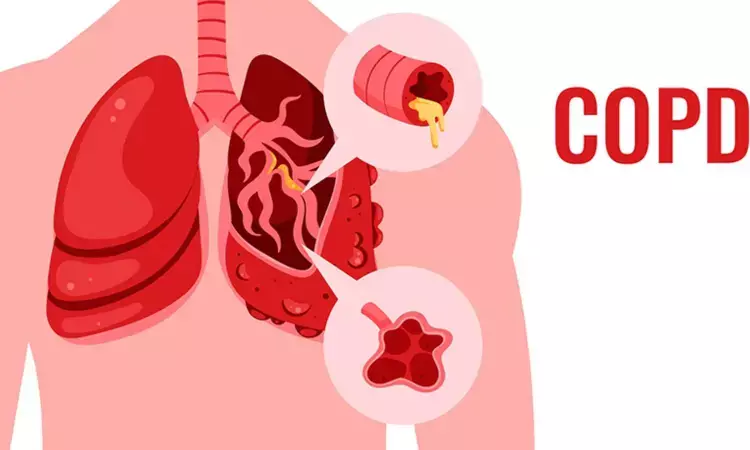- Home
- Medical news & Guidelines
- Anesthesiology
- Cardiology and CTVS
- Critical Care
- Dentistry
- Dermatology
- Diabetes and Endocrinology
- ENT
- Gastroenterology
- Medicine
- Nephrology
- Neurology
- Obstretics-Gynaecology
- Oncology
- Ophthalmology
- Orthopaedics
- Pediatrics-Neonatology
- Psychiatry
- Pulmonology
- Radiology
- Surgery
- Urology
- Laboratory Medicine
- Diet
- Nursing
- Paramedical
- Physiotherapy
- Health news
- Fact Check
- Bone Health Fact Check
- Brain Health Fact Check
- Cancer Related Fact Check
- Child Care Fact Check
- Dental and oral health fact check
- Diabetes and metabolic health fact check
- Diet and Nutrition Fact Check
- Eye and ENT Care Fact Check
- Fitness fact check
- Gut health fact check
- Heart health fact check
- Kidney health fact check
- Medical education fact check
- Men's health fact check
- Respiratory fact check
- Skin and hair care fact check
- Vaccine and Immunization fact check
- Women's health fact check
- AYUSH
- State News
- Andaman and Nicobar Islands
- Andhra Pradesh
- Arunachal Pradesh
- Assam
- Bihar
- Chandigarh
- Chattisgarh
- Dadra and Nagar Haveli
- Daman and Diu
- Delhi
- Goa
- Gujarat
- Haryana
- Himachal Pradesh
- Jammu & Kashmir
- Jharkhand
- Karnataka
- Kerala
- Ladakh
- Lakshadweep
- Madhya Pradesh
- Maharashtra
- Manipur
- Meghalaya
- Mizoram
- Nagaland
- Odisha
- Puducherry
- Punjab
- Rajasthan
- Sikkim
- Tamil Nadu
- Telangana
- Tripura
- Uttar Pradesh
- Uttrakhand
- West Bengal
- Medical Education
- Industry
Exacerbations in COPD inversely associated with human beta-defensin-2 levels

China: New study from China revealed that COPD patients with a high risk of exacerbations are found to have lower sputum human beta-defensin-2 levels. These hBD-2 levels can be used to predict exacerbations in COPD patients in the next 12 months. The study results were published in the journal BMC Pulmonary Medicine.
Chronic obstructive pulmonary disease (COPD) is a complex chronic inflammatory condition of the pulmonary tract. Potential pathogenic microorganisms (PPMs) can cause inflammation leading to exacerbation frequency and severity of COPD. Respiratory viral infection like the rhinovirus also causes acute exacerbations of COPD. Human beta-defensin-2 (hBD-2) which is an anti-microbial peptide, is an essential component of innate and adaptive immunity that promotes host defense by destroying the cell membranes of microorganisms. Hence researchers from China conducted a 2-year, single-center, observational study in Guangzhou province, China based on the hypothesis that levels of hBD-2 and cytokines may predict the acute exacerbations of COPD.
Sputum hBD-2 levels were measured in nearly 254 patients from Guangzhou, China, for 2 years. The study participants were categorized into the COPD group (n = 203) and the control group (n = 51). All the participants were aged 40–79 years old. Based on the disease severity participants were divided into 4 groups of GOLD 0-4. The sputum hBD-2 level and levels of cytokines, such as CXCL10, CXCL11, and IFN were measured at baseline, 12th month, and 24th month using the ELISA method.
Key findings:
- No significant differences were found in the sputum and serum hBD-2 levels between the patients and the controls at baseline.
- The sputum hBD-2 levels of patients who had at least one symptom aggravation over the next 2 years were significantly lower than those of patients without any exacerbations (1130.9 ± 858.4 pg/mL vs. 2103.7 ± 1294.2 pg/mL, respectively; p = 0.001).
- No statistically significant differences were found in the sputum hBD-2 levels between patients (no aggravation history) and controls (2084.9 ± 1317.6 pg/mL vs. 2152.5 ± 1251.6 pg/mL, respectively; p = 0.626).
- Logistic regression model was used to assess the relationship between aggravation and sputum hBD-2 levels that revealed that low hBD-2 level (< 1000 pg/mL) was significantly associated with exacerbations.
- Increased exacerbations in the next 12 months were seen specifically in patients with low hBD-2 levels (0.333 vs. 0.117; p = 0.001).
- On comparison of the hBD-2 levels between controls and patients with GOLD 3–4 it was found that participants with bacteria (+) and/or viruses (+) had an association between hBD-2 level and disease severity (p = 0.02).
Thus, lower hBD-2 levels usually indicated COPD exacerbations which can have important implications for future therapies for COPD.
Further reading: Feng, S., Yang, Y., Wang, F. et al. Low human beta-defensin-2 levels in the sputum of COPD patients are associated with the risk of exacerbations. BMC Pulm Med 23, 106 (2023). https://doi.org/10.1186/s12890-023-02364-0
BDS, MDS
Dr.Niharika Harsha B (BDS,MDS) completed her BDS from Govt Dental College, Hyderabad and MDS from Dr.NTR University of health sciences(Now Kaloji Rao University). She has 4 years of private dental practice and worked for 2 years as Consultant Oral Radiologist at a Dental Imaging Centre in Hyderabad. She worked as Research Assistant and scientific writer in the development of Oral Anti cancer screening device with her seniors. She has a deep intriguing wish in writing highly engaging, captivating and informative medical content for a wider audience. She can be contacted at editorial@medicaldialogues.in.
Dr Kamal Kant Kohli-MBBS, DTCD- a chest specialist with more than 30 years of practice and a flair for writing clinical articles, Dr Kamal Kant Kohli joined Medical Dialogues as a Chief Editor of Medical News. Besides writing articles, as an editor, he proofreads and verifies all the medical content published on Medical Dialogues including those coming from journals, studies,medical conferences,guidelines etc. Email: drkohli@medicaldialogues.in. Contact no. 011-43720751


